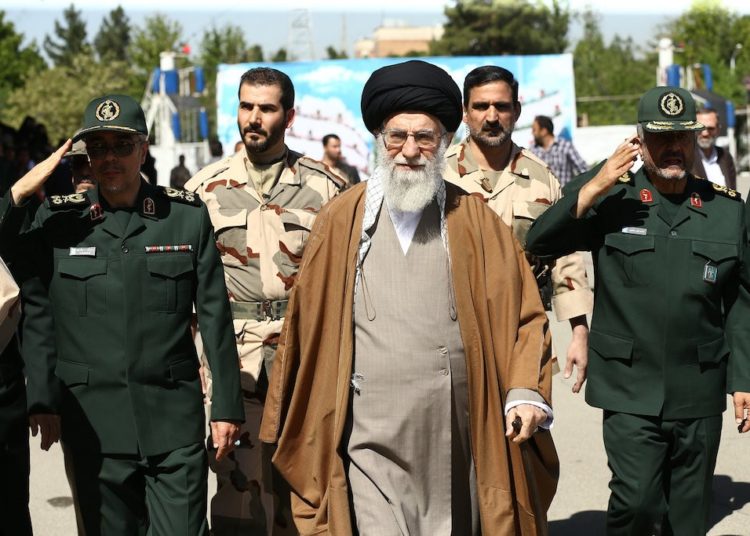Nordic Monitor
Classified documents obtained by Nordic Monitor have revealed how the Turkish military closely monitored the changing structure of the Iranian army and security operations conducted by the Islamic Revolutionary Guard Corps (IRGC) until 2016.
A review of the government documents, dated June 30, 2016, shows that the office of the Turkish defense attaché in Tehran examined the appointment of Gen. Mohammad Hossein Bagheri as Iranian chief of general staff at the time and collected information on his career, role in the Islamic Revolution and links to Iran’s supreme leadership. The diplomatic correspondence also includes Deputy Defense Attaché Maj. Ömer Özgül’s view of the appointment and Gen. Bagheri’s military experience and background.
In the documents Maj Özgül informed the Turkish General Staff that Gen. Bagheri was promoted from his previous position as deputy chief of staff for intelligence and operations on the Iranian general staff on June 28, 2016, replacing Gen. Hassan Firouzabadi less than three weeks before a failed coup in Turkey.
Gen. Firouzabadi, who had served as chief of the Iranian general staff since 1989, had to quit his post because of his close links to “reformist” President Hassan Rouhani, the documents claimed.
According to the communiqué, Khamenei selected Bagheri, a figure recognized for his expertise in intelligence and his leading role in IRGC operations against Kurdish militias in 1996, due to the (ongoing) clashes between the Democratic Party of Iranian Kurdistan (KDPI) and the IRGC in Iran’s northwest.
Gen. Bagheri, in his new position, began involving himself in issues that his predecessors had avoided and was the first Iranian chief of general staff to visit Ankara since the 1979 revolution.

The correspondence also stressed that Gen. Bagheri was the younger brother of Hassan Baggier (Gholam-Hossein Afshordi), who was known as the founder of the IRGC intelligence units and “the genius of warfare.” The elder Bagheri was serving as commander of the IRGC Ground Force when he was killed by Iraqi forces on January 29, 1983 in Fakkeh, a border region between Iraq and Iran.
Gen. Bagheri started studying mechanical engineering at Polytechnic University in 1979 and was among the students involved in the US hostage crisis, the documents stated, underlining that he joined the IRGC in 1980 in order to participate in a “Kurdistan Jihad” declared by Ayatollah Khomeini against the Kurdish rebellion carried out by the KDPI and the Komala Party of Iranian Kurdistan (Komala).
Moreover, the military documents stressed that Bagheri helped craft a plan for the IRGC in the Kurdistan region of Iran and led the IRGC operations against the KDPI and the Komala militias in 1996, which caused the Kurdish groups to unilaterally end their operations.
In 2008 Bagheri, who has a Ph.D. in political geography and teaches at Iran’s Supreme National Defense University, was promoted to major general, one of the few military commanders of Iran to attain the rank without first holding a position as commander of any of the major military forces, the documents stated.
Documents sent by the office of the Turkish defense attaché in Tehran:
The Turkish military was also closely monitoring the situation in Iran and the clashes between the KDPI and IRGC in June 2016. According to a Turkish Armed Forces memo, three members of the IRGC Quds Force and 12 members of the KDPI were killed during a clash on June 16, 2016.
Military memo revealing the clashes between the KDPI and the IRGC on June 16, 2016:
The Turkish military cozied up to Iran after the July 2016 failed coup in Turkey, which many believe was a false flag operation orchestrated by President Recep Tayyip Erdoğan, his intelligence chief Hakan Fidan and military head Gen. Hulusi Akar. Almost all pro-NATO officers were purged from NATO’s second largest army and replaced by pro-Iranian, neo-nationalist or Islamist officers. In an unprecedented development, the post coup era was marked by the frequent exchange of visits between Turkish and Iranian military officers.












